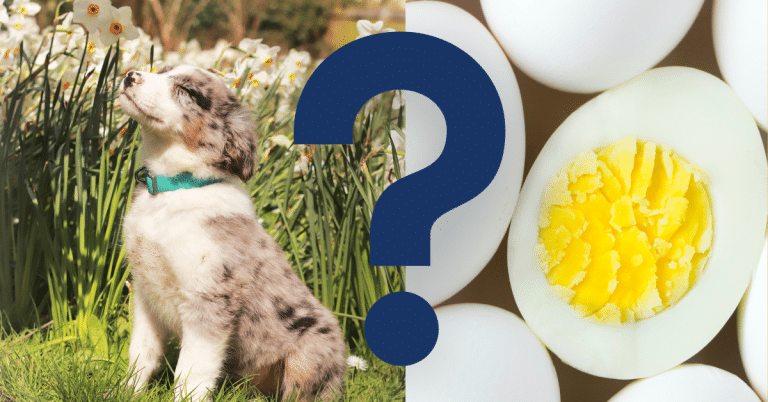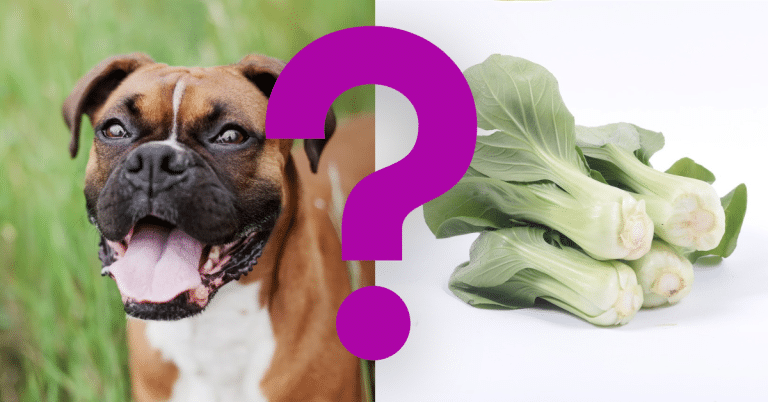Can Dogs Eat Ham? A Vet’s Opinion

Ham can be a good source of protein, but can you feed ham to your dog?
In moderation, dogs may ingest ham, but it’s crucial to follow specific safety measures to make sure it’s safe and nutritious for them to eat.
Benefits Of Ham For Dogs
Here are some more thorough justifications for why feeding ham to dogs could be advantageous:
- Ham is a meat product, making it high in protein and a healthy source of protein for dogs. Since it supplies the building blocks for muscles, bones, skin, and other tissues, protein is crucial for dogs. Lack of protein in a dog’s diet can deteriorate the immune system, delay development, and cause muscular atrophy. Including foods high in protein in your dog’s diet, such as ham, can ensure they get the nutrients they require to maintain good health.
- Rich in flavor: Dogs may find the taste of ham quite enticing since they have acute senses of smell and taste. Using it as a training reward or to get fussy eaters to eat their usual diet is a brilliant idea. A fun method to strengthen excellent behavior and your relationship with your dog is to use a little slice of ham as a reward or special treat.
Here are some downsides of feeding ham to your dog:
- High in sodium: Ham frequently contains a lot of sodium, which, if consumed excessively, can cause dehydration and other health issues.
- Ham bones and other small bits of meat have the potential to cause choking in dogs, tiny breeds.
- Pancreatitis is a painful and perhaps fatal illness that can develop in dogs when they consume fatty foods like ham.
But it’s crucial to remember that there are just a few advantages to giving ham to dogs, and there might also be adverse effects. As was previously said, ham contains a lot of salt and fat, which might be unhealthy if ingested.
It is also crucial to remember that not all dogs will likely take ham well, and some may have allergies or sensitivity to specific pork components. As a result, it’s crucial to speak with your veterinarian before giving your dog ham or any other human food to confirm that it’s secure and suitable for their particular needs.

How To Safely Give Ham To Dogs?
If you choose to provide ham to your dog, it is crucial to do it safely to prevent any possible health problems. You may give ham to your dog in the following ways without risk:
- Contact your vet: To be sure that any human food, including ham, is secure and suitable for your dog’s specific requirements, you should speak with your vet before giving it to your pet. Your veterinarian can advise you on the ideal serving size, how frequently to feed your dog, and any possible health hazards related to feeding ham to your dog.
- Lean, low-sodium ham is best: When choosing ham for your dog, use thin pieces with little flavor, or salt added. Avoid heavy fat or sodium ham since it might cause obesity, thirst, or gastrointestinal problems in dogs. Moreover, search for “uncured” ham, which often has fewer chemicals and preservatives than cured ham.
- Cook the ham thoroughly. Ham that is raw or undercooked may contain dangerous bacteria that can sicken your dog. As a result, it’s crucial to thoroughly cook the ham before feeding it to your dog. Ham may be boiled, baked, or grilled, but before feeding it to your dog, remove any bones and other inedible bits.
- When giving the ham to your dog, chop it into small, bite-sized pieces to lower the possibility of choking or gastrointestinal obstructions. Also, this will facilitate your dog’s digestion and help keep them from consuming an excessive amount of ham at once.
- Give ham to dogs sparingly; while it can be a pleasant treat, it shouldn’t make up much of their diet. Give your dog ham sometimes as part of a well-balanced diet containing other proteins and foods high in nutrients. Avoid giving ham to dogs with underlying medical issues like renal disease or cardiac issues since the high salt and fat levels might worsen these diseases.
You may safely offer ham to your dog as a treat or training incentive if you follow these instructions. The healthiest diet for your dog, though, is based on their unique requirements, so it’s crucial to remember that. Before making any significant dietary changes or giving your dog any human food, speaking with your veterinarian is always a good idea.
Will Ham Make A Dog Sick?
If given in large quantities or cooked incorrectly, feeding ham to dogs may make them sick. The high salt level of ham is one of the primary issues with feeding it to dogs. Ham is frequently cured or processed with salt, which can cause dehydration, renal disorders, and other health concerns if served in excess to dogs.
Furthermore, because ham is a fatty meat, giving dogs too much of it might raise their risk of pancreatitis, which can be unpleasant and even fatal when the pancreas gets inflamed. Last but not least, dogs, especially tiny breeds, might choke on ham bones and other small pieces of meat, and if they ingest them, they can develop gastrointestinal obstructions. As a result, even while ham may be a delightful treat for dogs in moderation, it’s crucial to be careful when giving it to them. If you worry about your dog’s health, consult a veterinarian.

Vet’s Summary
In moderation, the ham may be a pleasant treat for dogs, but it should always be given with caution because it can make dogs sick if administered incorrectly. Ham frequently contains high levels of salt and fat, which can cause health issues in dogs, such as dehydration, pancreatitis, and gastrointestinal obstructions. Also, it’s vital to seek the advice of a veterinarian before giving ham to dogs since it cannot include all the nutrients they require in their diet.
Including probiotics in your dog’s diet is one approach to boost their general health and digestive system. Probiotics are good macrobiotics in specific dog diets and supplements. Still, before introducing your dog to any new supplements or dietary modifications, it’s crucial to see your veterinarian to ensure they are secure and suitable for your dog’s particular requirements.
Videos To Watch
Here are some videos to help you understand better if your dog can eat ham or not:






